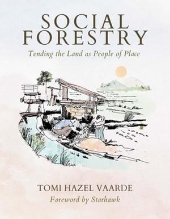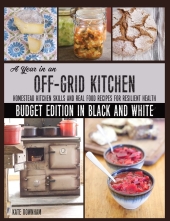I've been appalled by the anti-science tinge that permaculture has been taking on in recent years, and the notion that invasives are not a problem is one of the most egregious examples. I'm not talking about the OP here, but some of the responses have been absolutely shocking to me.
While non-native plants may support some generalist pollinators quite well as nectar sources (I do love my goumis), they won't support many important specialists, and none of them are host plants for native lepidoptera - the foundation of our food web. Without them, the rest of the web collapses. A diverse native plant ecosystem is absolutely essential to preventing complete ecosystem collapse, so let's not pretend that turning a lawn into a bunch of non-native food crops is anything other than turning one ecological desert into another. Now, this is a complex issue, and I'm not here to malign any plant as evil - it's not their fault they're here! and the (native) deer are as much a part of the problem because of their current lack of natural predators and their insistence on eating native plants - but as someone who manages them professionally on multiple properties in the southeastern Catskills and nearby Hudson/Mahicannituck Valley, 'wait and see' is an approach I've seen many come to regret.
OP, I think you're doing a great job! It's a big task, and you're right, you have to maintain the energy to keep at it. If you can keep on top of the honeysuckle and barberry and prevent them from fruiting, chop-and-drop is absolutely a reasonable approach. Most people I know can't manage that, and so outright removal is a better option, as long as you can get something in to prevent soil erosion and hold the space, of course. In the case of the honeysuckle, I've found that they're actually incredibly easy to uproot, and much easier if you *don't* cut them too much. Usually I can use their large woody trailing limbs and just rock them back and forth until they come loose. Occasionally I'll have to take a couple of swings with a pickaxe to loosen a couple of them, but it's not the vigorous exercise that barberry removal is. It's also very dense wood, and I suspect would make good firewood, biochar, and the like (one of my clients does burn it, but he's very uncritical, so I don't have a real comparison yet against hardwood).
Creeping thistle is a menace. Its spreading rhizomes are difficult to remove completely, and it sets thousands of classic aster-family seeds, which will float off on the breeze to frog knows where. At the least, please cut before they flower - asteraceae of all sorts often can still ripen seed when cut in the early flowering stage - but consider full removal. Barkaboom Nursery (in Margaretville, and at the Grand Gorge farmers market) can almost certainly provide you with a native analogue that will delight both you and the bug-friends. I've seen this one take over entire acres of land, leaving nothing else until the shrubs and trees come in. It can tolerate shade until canopy-closure, so unless you're working on an accelerated closed-canopy forest, don't expect to knock it back any way but removal. I've never had to resort to herbicides for anything yet, but this is one of the ones that make me wonder if it'll someday come down to it. (While I don't want to ever use pesticides, I find that religious approaches to almost anything are unhealthy, and there may be a time and a place for any tool - though I'm glad I haven't found it yet).
Garlic mustard just sets a lot of seeds. It'll become your dominant groundcover if you're not careful. I do like to munch on it, and make a pesto 50/50 with chickweed and some lemon juice (or you could probably make it 100% local with sorrel instead), but once the population explodes there's no amount of pesto that will keep up. Since eradication is a fool's game - you'll never achieve it - I also don't worry that I'll ever run out of it, and pull it with reckless abandon. It can be cut repeatedly and will flower again every time, like so many plants I love, but in this case that's a problem, and my goal with it is to knock it back a bit every year: Choose one area to clear, then another, then another. Every year, as you reduce the seed-load, it gets easier. The first year plants are much easier to pull, the second-year ones are more urgent to prevent seeding; you'll have to find your own personal balance.










